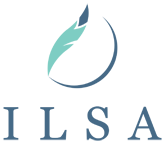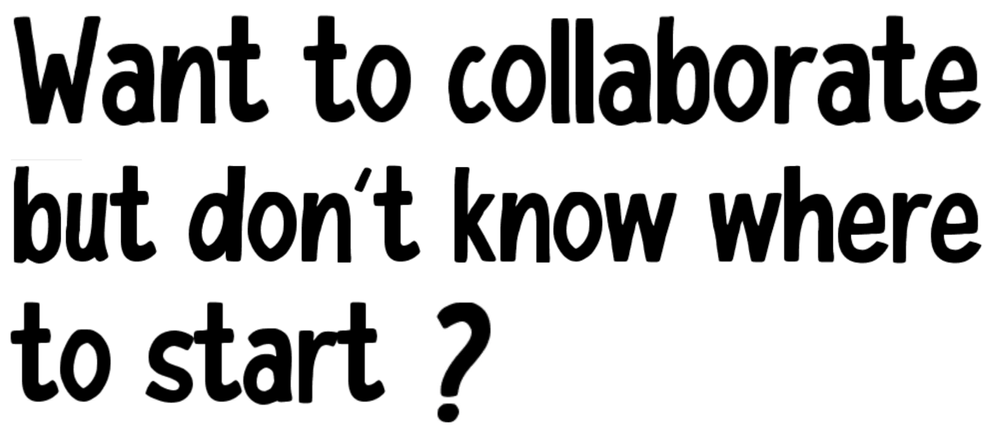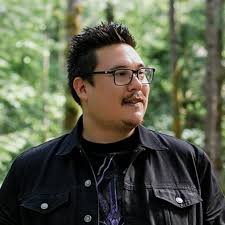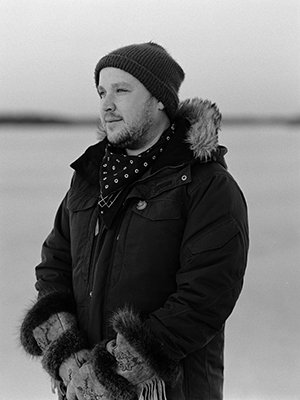kristina bidwell (nunatukavut) and sophie Mccall (settler) presenting early findings on collaboration at ilsa 2023;
photo courtesy of sweetmoon photo.
The Collaboration Station is a networking initiative driven by the research being done for a forthcoming collaborative book project by Kristina Bidwell (NunatuKavut) and Sophie McCall (settler) on Indigenous collaboration in the literary arts. The Collaboration Station is co-directed and managed by Leah Alfred-Olmedo (Kwakwa̱ka̱ʼwakw) and Olivia Abram (settler).
Background on the project:
After participating in a group interview regarding student and early-career-scholar collaboration, research for Kristina and Sophie’s forthcoming book, Liv and Leah created the Collaboration Station as a response to calls from fellow students and early-career-scholars for more collaborative opportunities. The Collaboration Station seeks to provide a space for all collaborators (students, early career scholars, established scholars, community members) to find each other, and hopefully increase collaboration in the field of Indigenous literary studies.
We prioritize projects that may not “fit” in typical academic calls for papers or job advertisements, such as: graduate students seeking collaborators for a paper-editing community; scholars seeking research assistants; community members or organizations seeking an academic collaborator on a written, oral, or creative project; academic writers seeking creative collaborators for a project with community-facing products, and more. While we acknowledge that some collaborations are place-specific, we encourage you to consider how your CFC (Call for Collaborators) might be adapted to accommodate remote applicants.
ISO: Collaborators for SSHRC Insight Grant
Length of project: 6-12 months
Hours: flexible
Location: remote
Description:
Seeking collaborators for a SSHRC Insight grant proposal in October 2024; this project is designed to last 5 years (2025-30) and I am hopeful it would contribute to the knowledge and publicity of Indigenous artistic productions in a novel way. mpascal@upei.ca.
Skills/requirements/asset: Knowledge/experience related to Indigenous literatures and cinema and student mentoring.
Collaborator: Marie Pascal, UPEI
ISO: Emerging Indigenous Editors - Mentorship Opportunity with Jordan Abel (Nisga’a) and Conor Kerr (Métis)
Length of project: flexible!
Hours: flexible!
Location: flexible/virtual!
Description: Indigenous emerging editors living in Canada who are interested in receiving mentorship please contact us through the form below for more information. Volunteers will be invited to edit creative works and to pitch interviews or book reviews
Collaborator: Jordan Abel and Conor Kerr
ISO: Collaborators for Study Circle on Indigenous Comics - Let’s Read Together
Length of project: flexible
Location: remote
Description: Seeking a group of thinkers to pilot (and help shape!) a collaborative reading/seeing methodology; primary text tbd, based on collaborators. Hoping this will result in a co-written publication as well as (potentially) a teachers’ resource for teaching the selected primary text.
Skills/requirements/assets:
Collaborator: Willingness to join! Experience with comics studies, seeing, working with multi-sensory works, etc. would be a plus!
To advertise or propose a project, submit your CFC here!
ISO:
Length of project:
Hours:
Location:
Description:
Skills/requirements/assets:
Collaborator:
A Note on Posting CFCs, Responding to CFCs, and Fielding Responses:
We know it can be hard to find collaboration opportunities in general, but we urge both advertisers and responders to proceed with intention to ensure collaborator and collaborator-project complementarity and reciprocity.
Advice for CFC Advertisers:
Give the questions on our Google form thorough consideration before submitting; email us if you have questions or need clarification.
Haven’t heard from a collaborator who is a good fit? Consider broadening your collaborator or project dimensions and resubmit your Google form, or, wait—sometimes collaborator and collaborator-project complementarity is more important than project completion or proposed timelines.
Got a promising response from a potential collaborator? Meet with them synchronously—virtually or in person—to ensure it’s a good fit. In addition to logistical questions, consider discussing questions like:
What are our hopes for this collaboration?
How will (or might) co-created work be represented in a final product?How will this co-created knowledge be used?
Will we be able to use products from this project in future work?
Advice for CFC Responders:
Give thorough consideration to the CFC’s requirements in relation to your own capacity and interests; make sure the project is a good fit for you. If the project extends beyond your capacity but you’re still interested, note this in your response—maybe the advertiser is flexible!
In your response, introduce yourself and provide a brief background; explain why you think you would be a good fit for the project. Consider providing links to information about you and/or your research, your experience with things akin to the CFC you are responding to, and potential references.
Rejection can be tough. If the advertiser doesn’t think you’re a good fit for the project, try not to take it personally and don’t let it stop you from responding to other CFCs!
Got a promising response from a potential collaborator? Meet with them synchronously—virtually or in person—to ensure it’s a good fit. In addition to logistical questions, consider discussing questions like:
What are our hopes for this collaboration?
How will (or might) co-created work be represented in a final product?
How will this co-created knowledge be used?
Will we be able to use products from this project in future work?











